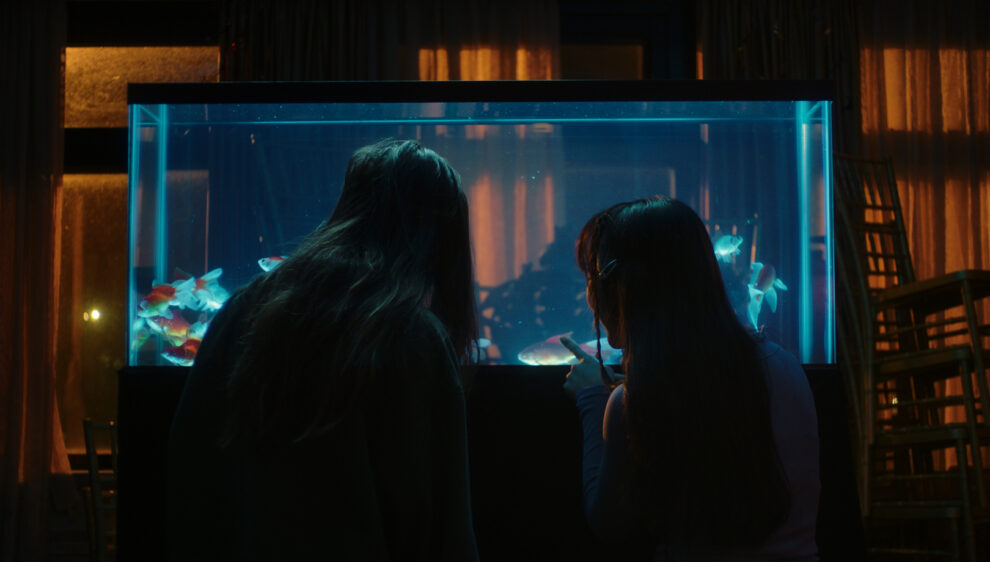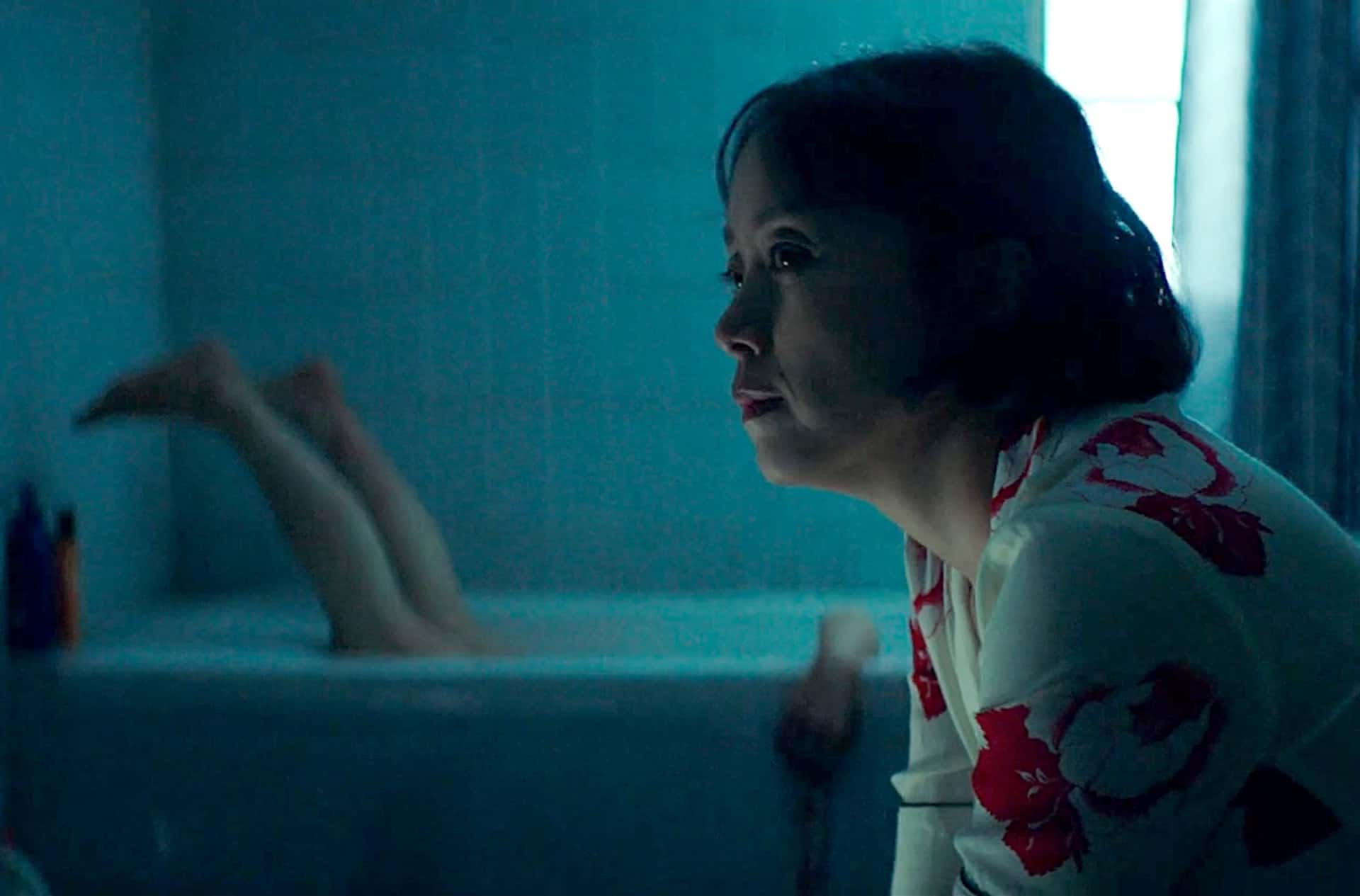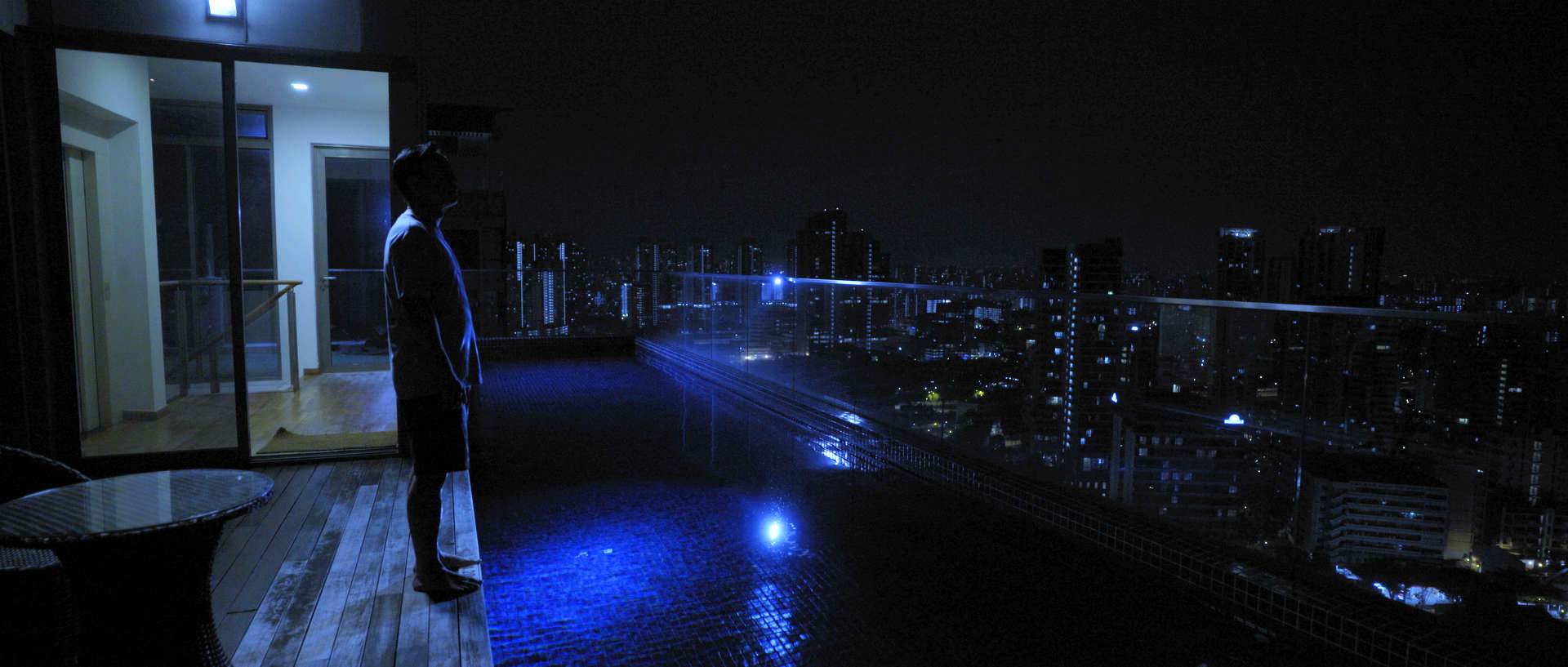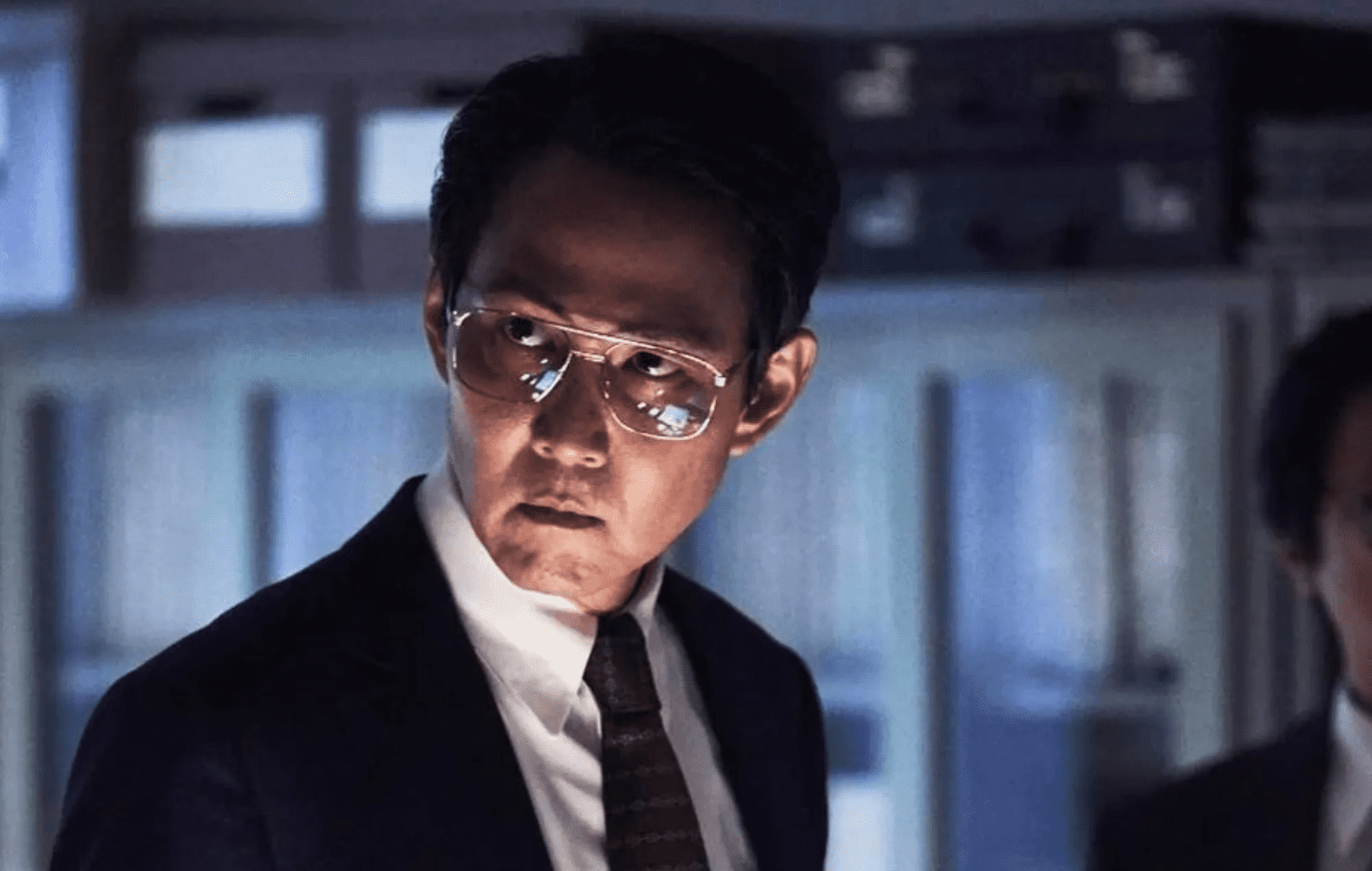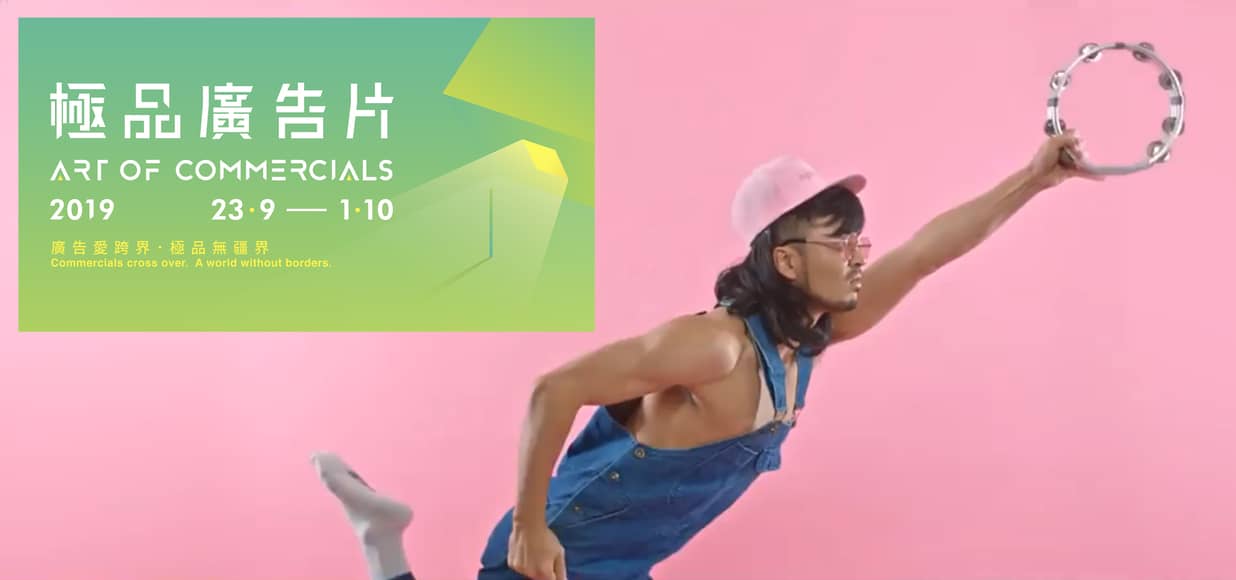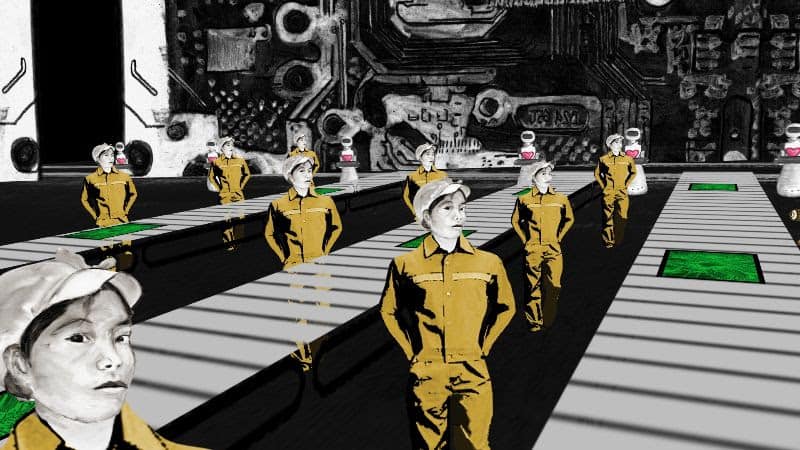Emily May Jampel is a filmmaker from Oʻahu, Hawai'i, based in New York City. “Lucky Fish” is her debut short, and has already played at festivals including Palm Springs International Film Festival (Winner, Young Cineastes Award, Special Mention, Best LGBTQ+ Short), Champs-Élysées (Winner, Audience Award), Outfest L.A., Frameline, Inside Out and Short Shorts Film Festival & Asia.
“Lucky Fish” is screening at Busan International Short Film Festival

The movie begins inside a Chinese restaurant where Maggie, an Asian-American girl who is about to go to college, is “suffering” through her family's condescension, cliched-thinking and intrusiveness, as her younger sister has caught her looking at another Asian-American girl, across their table. Frustrated, Maggie goes to the bathroom, where she meets the aforementioned, Celene, with the two eventually moving to the upper floor of the restaurant, where an impressive fish tank is lying. Gradually, word by word, agreement by agreement, the two come closer.
Within the 8 minutes of the short's duration, Emily May Jampel manages to make a number of social comments. As we hear the grown ups on the table saying “the lesbian art school?” when Maggie states she wants to attend Sarah Lawrence, the cliche, ignorance and essentially insensitivity parents occasionally exhibit towards their children comes to the fore in the most eloquent way, as much as their controlling nature. That members of the LGBT community have to face an added level of difficulty in their relationships with their parents is also highlighted, both in the table and later on, when the two girls meet. Within their frustration, however, the two girls manage to find each other, and even connect if briefly, with Jampel essentially sending a message of hope and optimism with her narrative.
At the same time, though, some things could have been handled better in terms of context. For example, that Maggie actually seems to be a lesbian, gives another sense to the comment about Sarah Lawrence, somewhat confirming the cliche, with the general attitude of the grown ups on the table also moving towards the same direction. The same applies to some parts of the discussion of the two girls, that also delve into cliche territory regarding the Chinese (Chinese-American if you prefer), although the remarks could also be attributed to the awkwardness the two experience as they meet.
On the other hand, in terms of acting, the performances of the two girls are quite convincing, with their experience from roles on TV being quite evident here. The reluctance of Lukita Maxwell's Maggie and the confidence of Anna Mikami's Celine create a rather appealing antithesis, reminding of some of the best aspects of teenage drama, with the chemistry of the two being on the highest level.
Ace Buckley's cinematography is also top notch, with the images of the food on the table, the framing of the girls' faces as they gaze towards each other across the restaurant, and most of all, the dreamy depiction of the fish tank all being outstanding. The last part in particular, in combination with the atmospheric music, results into some music-video aesthetics that add even more to the appeal of the visuals in the short. Alan Wu's editing results in a fitting mid-tempo, with the cuts being well placed within the narrative.
Despite some issues with the context, “Lucky Fish” emerges as a worthy short, whose focus on optimism and a general euphoria, along with the cinematography and the acting, place it above the average LGBT film.


